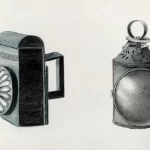Patent Agent Registration in India: Your Guide to Licensing
- January 24, 2024
- By Sarita Thomas
- Read 10 minutes
A Patent Agent is a professional who is authorized to practice before the Indian Patent Office. They are responsible for assisting inventors and businesses in securing patents for their inventions. Patent agents have a deep understanding of patent laws and regulations, as well as technical expertise in various fields. They help clients navigate the complex process of patent registration, including conducting patent searches, drafting patent applications, and representing clients in patent-related matters. Patent agents play a crucial role in protecting intellectual property and promoting innovation in India.
Importance of Patent Agent Registration
Obtaining patent agent registration in India is crucial for individuals who wish to practice as patent agents. The registration process ensures that only qualified professionals with the necessary technical and legal expertise are allowed to represent clients in patent matters. Patent agents play a vital role in the patent application process, providing valuable advice and assistance to inventors and businesses. They help in drafting patent specifications, filing patent applications, and prosecuting them before the Indian Patent Office. Without proper registration, individuals cannot legally offer their services as patent agents. Moreover, registered patent agents enjoy certain privileges, such as the right to appear before the Intellectual Property Appellate Board (IPAB) and the ability to use the title of ‘Registered Patent Agent.’ By obtaining patent agent registration, professionals can enhance their credibility and establish themselves as trusted experts in the field of patent law.
Role and Responsibilities of a Patent Agent
A patent agent is a professional who is registered with the Indian Patent Office and is authorized to practice before the Indian Patent Office. They play a crucial role in the patent registration process and have important responsibilities.
Here are some of the key roles and responsibilities of a patent agent:
Preparing and filing patent applications: Patent agents are responsible for drafting patent applications and filing them with the Indian Patent Office. They need to have a deep understanding of the patent laws and regulations to prepare a strong and comprehensive application.
Prosecuting patent applications: Once a patent application is filed, patent agents are responsible for prosecuting the application. This involves responding to office actions, conducting interviews with patent examiners, and addressing any objections or rejections raised by the examiner.
Conducting patent searches: Patent agents are also responsible for conducting patent searches to determine the novelty and inventiveness of an invention. This involves searching through existing patents and scientific literature to identify prior art that may affect the patentability of an invention.
Providing legal advice: Patent agents provide legal advice to inventors and businesses regarding the patentability of their inventions, the patent application process, and the enforcement of patent rights. They help their clients understand the legal implications of their inventions and guide them through the complex patent system.
Maintaining confidentiality: Patent agents have to maintain the confidentiality of their clients’ inventions. They must ensure that all information related to their client’s inventions is kept confidential and not disclosed to any third parties without proper authorization.
In summary, patent agents play a crucial role in the patent registration process in India. They are responsible for preparing and filing patent applications, prosecuting applications, conducting patent searches, providing legal advice, and maintaining confidentiality. Their expertise and knowledge of patent laws and regulations are essential in helping inventors and businesses protect their intellectual property rights.
Eligibility Criteria for Patent Agent Registration
Educational Qualifications
To become a registered patent agent in India, certain educational qualifications must be met. The candidate must have a bachelor’s degree in science, engineering, or technology from a recognized university. Additionally, the candidate must have a minimum of two years of work experience in a relevant field. It is also necessary for the candidate to pass the Patent Agent Examination conducted by the Indian Patent Office. This examination tests the candidate’s knowledge of patent law, patent drafting, and patent prosecution. Once the candidate has met these educational qualifications and passed the examination, they can apply for registration as a patent agent in India.
Experience Requirements
To become a licensed patent agent in India, certain experience requirements must be met. Candidates must have a technical or scientific background, such as a degree in engineering, medicine, or science. Additionally, they must have a minimum of two years of experience in the field of patents, either through working in a patent law firm or as an in-house patent professional. This experience is crucial in developing the necessary skills and knowledge required to effectively assist clients in the patent application process. It is important to note that the experience requirements may vary slightly depending on the specific guidelines set by the Indian Patent Office. Therefore, aspiring patent agents should carefully review the eligibility criteria to ensure they meet all the necessary qualifications.
Age Limit and Nationality
To become a registered patent agent in India, certain eligibility criteria must be met. First, the candidate must be at least 21 years old. Additionally, the candidate must be a citizen of India or a resident of India. Non-resident Indians (NRIs) are also eligible to apply for the patent agent registration. It is important to note that there is no upper age limit for becoming a registered patent agent in India.
Process of Patent Agent Registration
Application Submission
Once you have completed the necessary educational and professional requirements, you can proceed with the application submission process to become a registered patent agent in India.
To begin, you will need to gather all the required documents, including:
- Proof of educational qualifications such as degree certificates or mark sheets.
- Proof of work experience in the field of patents, such as employment certificates or client testimonials.
- Proof of Indian citizenship or residency, such as a valid Indian passport or Aadhaar card.
- Proof of good character and conduct, which can be demonstrated through a police verification certificate.
Once you have gathered all the necessary documents, you can fill out the application form provided by the Indian Patent Office. Make sure to provide accurate and complete information, as any false or misleading statements can result in the rejection of your application.
After filling out the form, you will need to pay the application fee as specified by the Indian Patent Office. The fee can be paid online or through a demand draft.
Once your application and fee payment are successfully submitted, you will receive an acknowledgment receipt. Keep this receipt safe, as it will be required for future reference.
The Indian Patent Office will then review your application and conduct a thorough examination of your qualifications and documents. This process may take some time, so it is important to be patient.
If your application is approved, you will receive a registration certificate as a patent agent in India. This certificate will authorize you to practice as a patent agent and represent clients before the Indian Patent Office.
It is important to note that the registration as a patent agent in India is valid for five years. After five years, you will need to renew your registration by fulfilling the requirements and paying the renewal fee.
Becoming a registered patent agent in India can be a rewarding career path for individuals with a passion for intellectual property and innovation. By following the application submission process and fulfilling the requirements, you can join the ranks of professionals who play a crucial role in protecting and promoting innovation in the country.
Examination and Interview
After applying and the required documents, the next step in the patent agent registration process is the examination and interview. The examination is conducted by the Indian Patent Office to assess the applicant’s knowledge and understanding of the patent laws and procedures. It consists of both a written examination and an interview.
Written Examination: The written examination is designed to test the applicant’s understanding of various aspects of patent law, including patentability criteria, patent prosecution procedures, and patent infringement issues. The examination may include multiple-choice questions, short answer questions, and case studies.
Interview: After successfully clearing the written examination, the applicant is called for an interview. The interview is conducted to further assess the applicant’s knowledge and skills related to patent law. The interview panel may consist of representatives from the Indian Patent Office and experienced patent agents.
The examination and interview process is crucial in determining the eligibility of an applicant for patent agent registration. It evaluates the applicant’s understanding of patent laws and their ability to effectively represent clients in patent-related matters. It is important for applicants to thoroughly prepare for the examination and interview to increase their chances of success in obtaining the patent agent license.
Registration Certificate
To become a licensed patent agent in India, you need to obtain a Registration Certificate from the Indian Patent Office. This certificate is issued by the Controller General of Patents, Designs, and Trademarks. The registration process involves applying along with the required documents and fees. The documents include proof of educational qualifications, experience in patent-related work, and a statement of undertaking. Once the application is submitted, it is reviewed by the Patent Office, and if everything is in order, the Registration Certificate is issued. The certificate serves as proof of your eligibility to practice as a patent agent in India and is valid for five years. It is important to note that the registration process is governed by the Patents Act, 1970, and the Patents Rules, 2003. Failure to obtain a valid Registration Certificate can result in penalties and legal consequences.
Benefits of Patent Agent Registration
Legal Authority to Practice
In India, the legal authority to practice as a patent agent is governed by the Indian Patent Act, of 1970. Section 126 of the Act provides for the registration of patent agents, who are authorized to act on behalf of clients in matters related to patents. To be eligible for registration, an individual must meet certain qualifications and pass the patent agent examination conducted by the Indian Patent Office. The examination consists of both written and viva voce (oral) components and covers various aspects of patent law and practice. Once registered, a patent agent is granted the right to prepare, file, and prosecute patent applications in India. Registration as a patent agent is essential for anyone wishing to practice as a patent attorney or agent in India. It ensures that only qualified professionals with a thorough understanding of patent law and procedure are entrusted with the responsibility of representing clients in patent matters.
Increased Career Opportunities
Becoming a registered patent agent in India opens up a wide range of career opportunities. Patent agents play a crucial role in the intellectual property industry, helping individuals and companies protect their inventions and innovations. With the rapid growth of technology and the increasing importance of intellectual property rights, the demand for patent agents has been steadily increasing. Patent agents can work in various settings, including law firms, corporations, research institutions, and government agencies. They can choose to specialize in specific industries or technologies, such as biotechnology, pharmaceuticals, electronics, or software. Additionally, patent agents can also pursue opportunities as patent consultants or start their patent consulting firms. With the right skills and experience, a career as a patent agent can be highly rewarding and financially lucrative.
Enhanced Professional Credibility
Becoming a registered patent agent in India can greatly enhance your professional credibility in the field of intellectual property. Patent agents are authorized to represent clients before the Indian Patent Office and assist them with various aspects of the patent application process. By obtaining a patent agent registration, you demonstrate your in-depth knowledge and understanding of patent laws and regulations in India. This not only establishes your expertise in the field but also increases your chances of being hired by reputed law firms, corporations, or research institutions. Additionally, being a registered patent agent allows you to provide valuable services to inventors and entrepreneurs, helping them protect their inventions and navigate the complex patent system. Overall, obtaining a patent agent registration in India is a significant milestone in your professional journey and can open up numerous opportunities for career growth and advancement.
Sarita Thomas
Latest Blogs
Blog Categories
- Intellectual Property (IP) Strategy (84)
- Intellectual Property Asset Management (IPAM) (17)
- IP Monetization (4)
- IP News (7)
- Patent Drafting (2)
- Patent Litigation (6)
- Patent Prosecution (8)
- Patenting (18)









No comment yet, add your voice below!